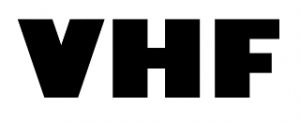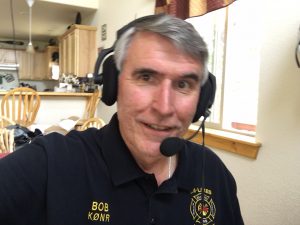 2017 June VHF Contest (K0NR)
2017 June VHF Contest (K0NR)
 Last weekend, I was able to participate in the ARRL June VHF Contest, my favorite ham radio operating event. I thought conditions were pretty good…mostly I am satisfied if we have some decent sporadic-e propagation on 50 MHz, which we did. Once again, I entered in the Single Operator – 3 Band category with a claimed score of 34,969.
Last weekend, I was able to participate in the ARRL June VHF Contest, my favorite ham radio operating event. I thought conditions were pretty good…mostly I am satisfied if we have some decent sporadic-e propagation on 50 MHz, which we did. Once again, I entered in the Single Operator – 3 Band category with a claimed score of 34,969.
This is the first contest where I used WSJT modes and was successful but certainly not highly skilled. I know I blew a couple of MS144 contacts due to operator error on my part. As I prepared for the contest, I was really focused on getting the computer/radio connections sorted out in advance, which I did accomplish. I made some JT65 and MSK144 contacts a few days ahead of the contest, so I was good to go. The issue that I totally missed was thinking through the operating position so that I could switch modes/bands easily. Instead, I had lots of cable plugging and unplugging as I moved things around. More to learn and improve on next time.
K0NR Single Op - 3 Band Band QSOs Mults ------------------- 6: 254 110 2: 29 10 222: 432: 3 1 ------------------- Total: 286 121 Total Score = 34,969
I made a dozen JT65 QSOs, all on the 6 meter band. These contacts were with very weak signals so I probably would have missed them on SSB. I have concluded that the main purpose of JT65 is to give bored operators something to fiddle with when band conditions are poor. It always seemed like there was just enough signal present for me to keep trying, sometimes with success, sometimes not.
 I was very pleased to work K5QE for my first 2m meteor scatter QSO (MSK144). My intent is to spend more time with this mode in the coming year and focus on chasing grids on 2 meters.
I was very pleased to work K5QE for my first 2m meteor scatter QSO (MSK144). My intent is to spend more time with this mode in the coming year and focus on chasing grids on 2 meters.
I looked back at my previous scores in the 3-band category. My best score (48,117) was back in 2013, the first year there was a 3-band category. Looking back at my blog posting from that year, at the time I didn’t think the band conditions were very good. I also came across this article by W0VG which indicates that stations from Colorado scored pretty well that year compared to other parts of the country. The results article in QST for that contest provides more detail.
So maybe propagation wasn’t that great this year after all. At least not in Colorado. (The DX spotting map looked really good in the eastern side of the US.) But I’ll go back to my earlier statement that any June VHF contest with some decent sporadic-e propagation on 50 MHz is a win.
Thanks to everyone that came out and played radio on the VHF bands.
73, Bob K0NR
The post 2017 June VHF Contest (K0NR) appeared first on The KØNR Radio Site.













